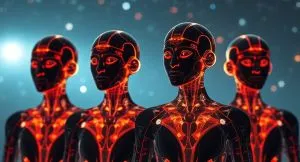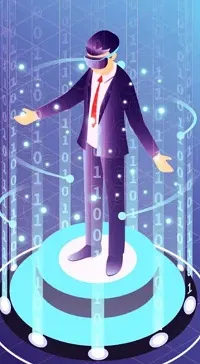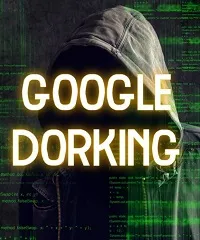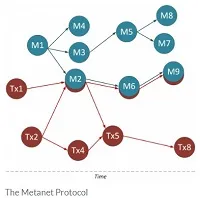
When privacy-focused users and hackers began tinkering with anonymizing proxies and encrypted communication tools in the 1990s, the concept of the dark web was born. What we now know as the dark web had its origins in these early efforts. The Onion Router (Tor) network, which was created by the United States Navy, is now an integral part of the deep web. By passing user traffic through a distributed network of volunteer-operated servers, it provided an anonymous internet experience. When Tor was eventually made available to the general public, its user base expanded. Silk Road, created by Ross Ulbricht, was one of the first and most notorious underground markets on the dark web. It functioned on the Tor network and allowed users to buy and sell illegal items incognito, most notably drugs. Law enforcement officials eventually put a stop to it in 2013. Other dark web marketplaces sprang up after Silk Road was shut down, each offering its own unique selection of illicit substances, stolen information, weapons, and more. The involvement of law enforcement has resulted in the closure of several of these markets. WikiLeaks and other whistleblowers have used the dark web to publish damaging information while remaining anonymous. Markets and services on the dark web come and go as the network develops. It has become the focus of both criminals and authorities, leading to a constant game of cat and mouse in the world of online anonymity and criminality.
Some parts of the dark web may be associated with criminal activity, but other parts offer legitimate services that prioritize users' privacy, such as encrypted email, discussion boards, and platforms that advocate for free speech in countries that impose heavy censorship. The dark web develops alongside new technologies. The dark web has survived despite improvements in encryption, cryptocurrencies like Bitcoin for anonymous transactions, and more secure communication tools.
Dark web Use cases:
- Privacy and Anonymity
- Circumventing Censorship
- Whistleblowing
- Secure Communication
- Research and Experimentation
- Protecting Online Activists
- Access to Legal Content
- Cryptocurrency Transactions
People who want to hide their online identities can do so on the dark web. For journalists, whistleblowers, and activists working under repressive regimes, the ability to access websites and communicate anonymously is crucial. If you live in a country where you are unable to freely access certain websites or information online due to government censorship, the dark web may be your only option. Whistleblowers have used the dark web to safely disclose confidential information to journalists and other organizations without fear of reprisal or exposure of their identities. In order to avoid being monitored by governments or other authoritative bodies, some people and organizations turn to the dark web for their confidential communications. Secure communication can be conducted via dark web encrypted email and messaging platforms. In order to better understand cyber threats, vulnerabilities, and the operations of criminal organizations, researchers and academics sometimes delve into the dark web. It offers a safe place to conduct studies without putting the public internet at risk. In authoritarian countries, dissidents, activists, and bloggers may use the dark web to host their websites and communicate with their audiences without drawing too much attention from the authorities. Despite the stigma attached to the dark web, legitimate resources can be accessed via Tor and other dark web networks. Discussion boards, search engines that prioritize user privacy, and digital libraries all fall into this category. For the sake of secrecy and anonymity, some cryptocurrency traders use the dark web. Bitcoin and other cryptocurrencies see use in a wide variety of markets, some of which are more shady than others.

Journalists working in countries where press freedom is restricted or who are subject to government censorship may turn to the dark web as a safe and anonymous means of communication and information gathering. Activists working in repressive regimes, political dissidents, and human rights advocates may use the dark web to organize and communicate without worrying about being monitored. Researchers studying cyber threats, vulnerabilities, and cybercriminal behavior can use the dark web as a safe space to collect data and insights. The dark web is a resource for regular internet users who are concerned about their privacy and want to gain access to more secure services, such as encrypted email. Researchers and academics can use the dark web to learn more about cybercrime, online communities, and the effects of censorship on the internet. On the dark web, you can buy and sell anything from drugs and weapons to fake currency and user credentials. These marketplaces are used by both buyers and sellers. To be clear, the dark web has both legal applications and seedy parts that have drawn the attention of governments around the world. Users should be wary of the dark web's legal and ethical ramifications and proceed with caution if they choose to access it.
Demerits of Dark web:
- Illegal Activities
- Cybercrime and Hacking
- Black Market Economy
- Risk to Users
- Challenges for Law Enforcement
- Ethical Dilemmas
Future of Dark web:
- Continued Use for Privacy and Security
- Increased Scrutiny and Law Enforcement
- Technological Advancements
- Shift in User Behavior
- Regulation and Legislation
- Emergence of New Privacy Technologies
- Ethical and Societal Debates
- International Collaboration
To combat international cybercrime on the dark web, law enforcement agencies may begin to work together on a global scale. If countries worked together, they might be able to dismantle criminal organizations more efficiently. As more people turn to the dark web for illicit activities, heated discussions about the proper role of governments and tech companies in combating crime and protecting users' privacy emerge. Decentralized networks and encrypted messaging apps are two examples of privacy-focused innovations that are expanding users' options for staying anonymous online. New regulations and legislation may be introduced by governments to deal with the problems posed by the dark web. Cybercriminals may face harsher punishments and cryptocurrency transactions may be more closely monitored. Some users of the dark web may change their behavior in response to increased law enforcement efforts, making it more difficult to monitor and counter illegal activities. Threats to the privacy and anonymity of the dark web could arise from the emergence of cutting-edge technologies like quantum computing. On the other hand, it might inspire the creation of cutting-edge privacy protections. The attention of governments and law enforcement agencies around the world is shifting toward the dark web in an effort to combat illegal activities there. This could lead to more efforts to eradicate criminal markets and operations on the deep web.
The dark web is not inherently evil or illegal, and this fact needs to be emphasized. A user's right to free expression, privacy, and safety may all benefit from the anonymity afforded by this technology. In terms of criminal activity, however, it poses significant challenges that keep it under constant debate and scrutiny. The dark web's advantages and disadvantages are like two sides of the same coin. For some users, it's a haven for illegal activities while providing them with privacy, security, and freedom of expression. Whether the effects on society as a whole are seen as "good" or "bad" is a matter of perspective and application. The dark web presents both risks and opportunities, and as society learns more about it, its perception is likely to change.







